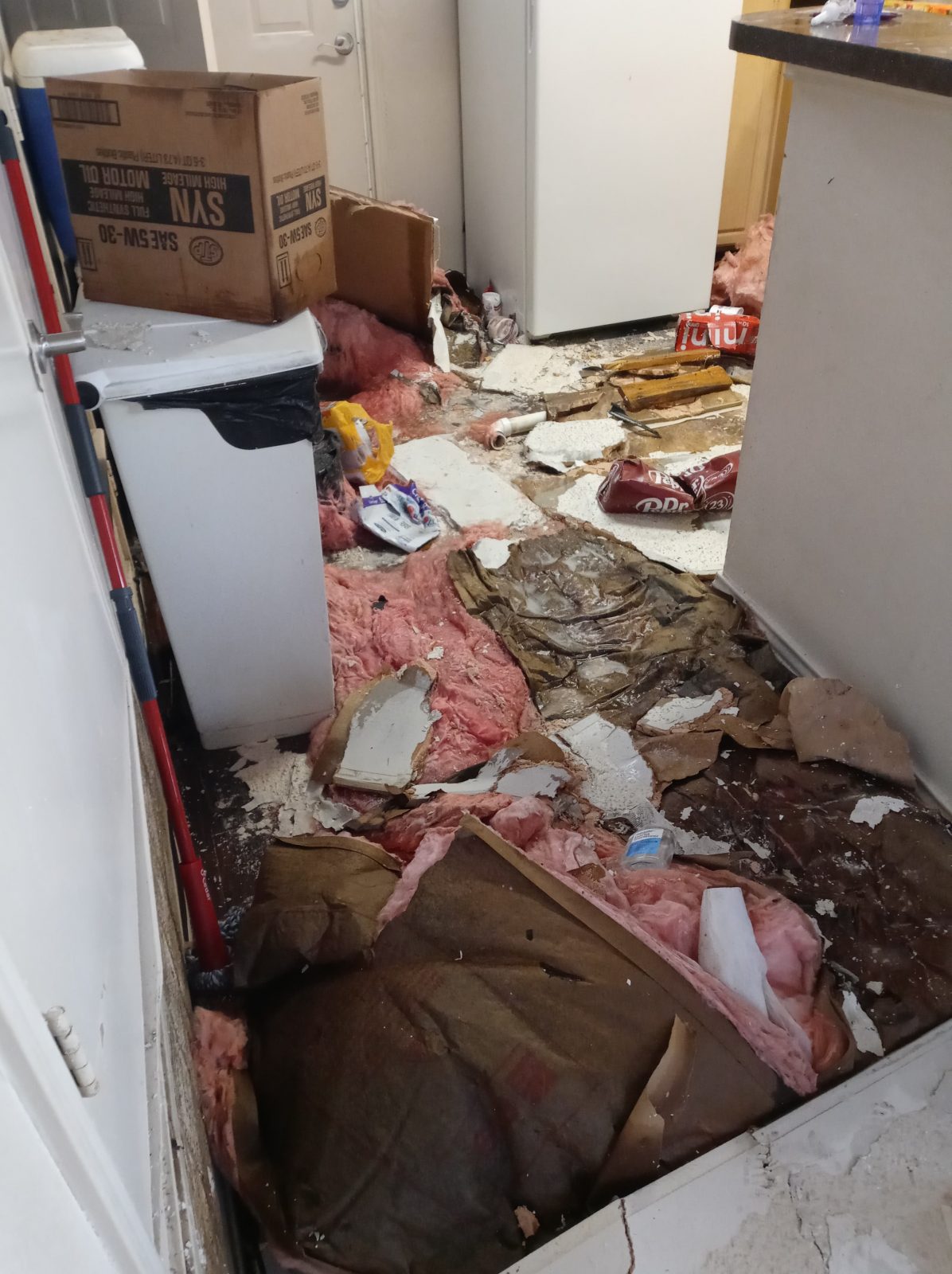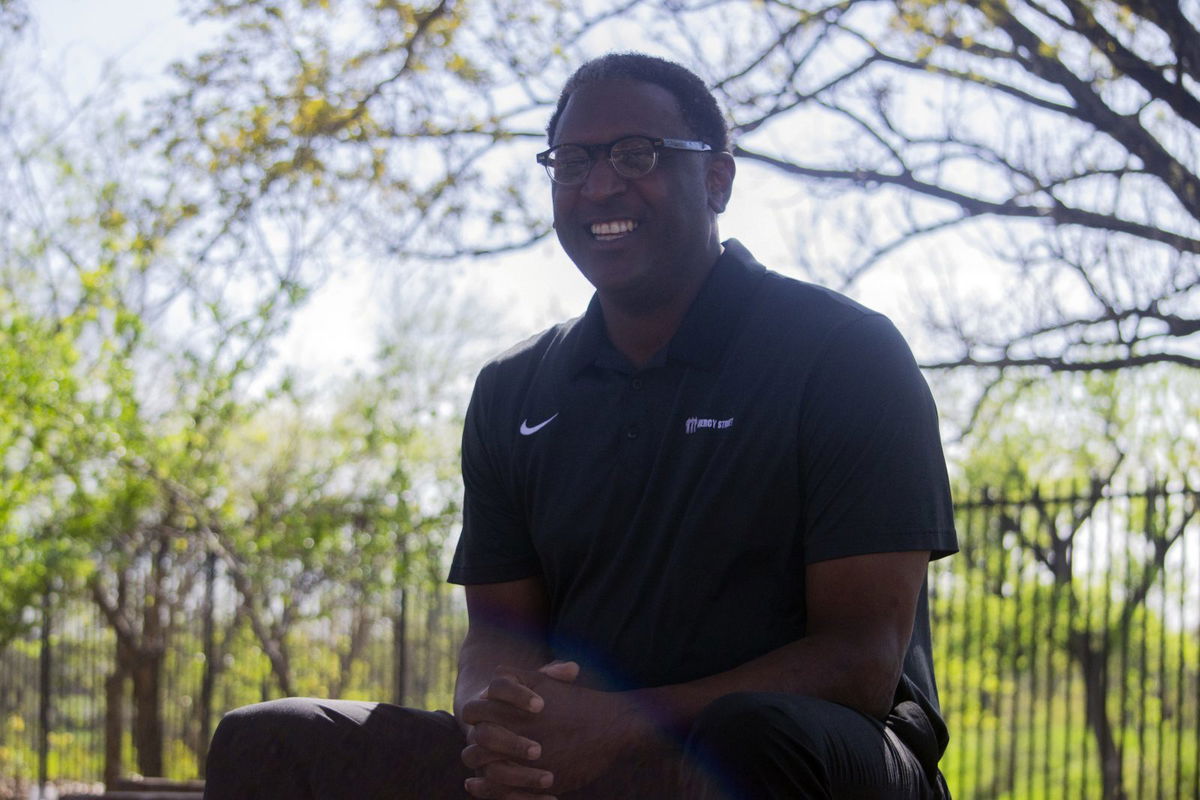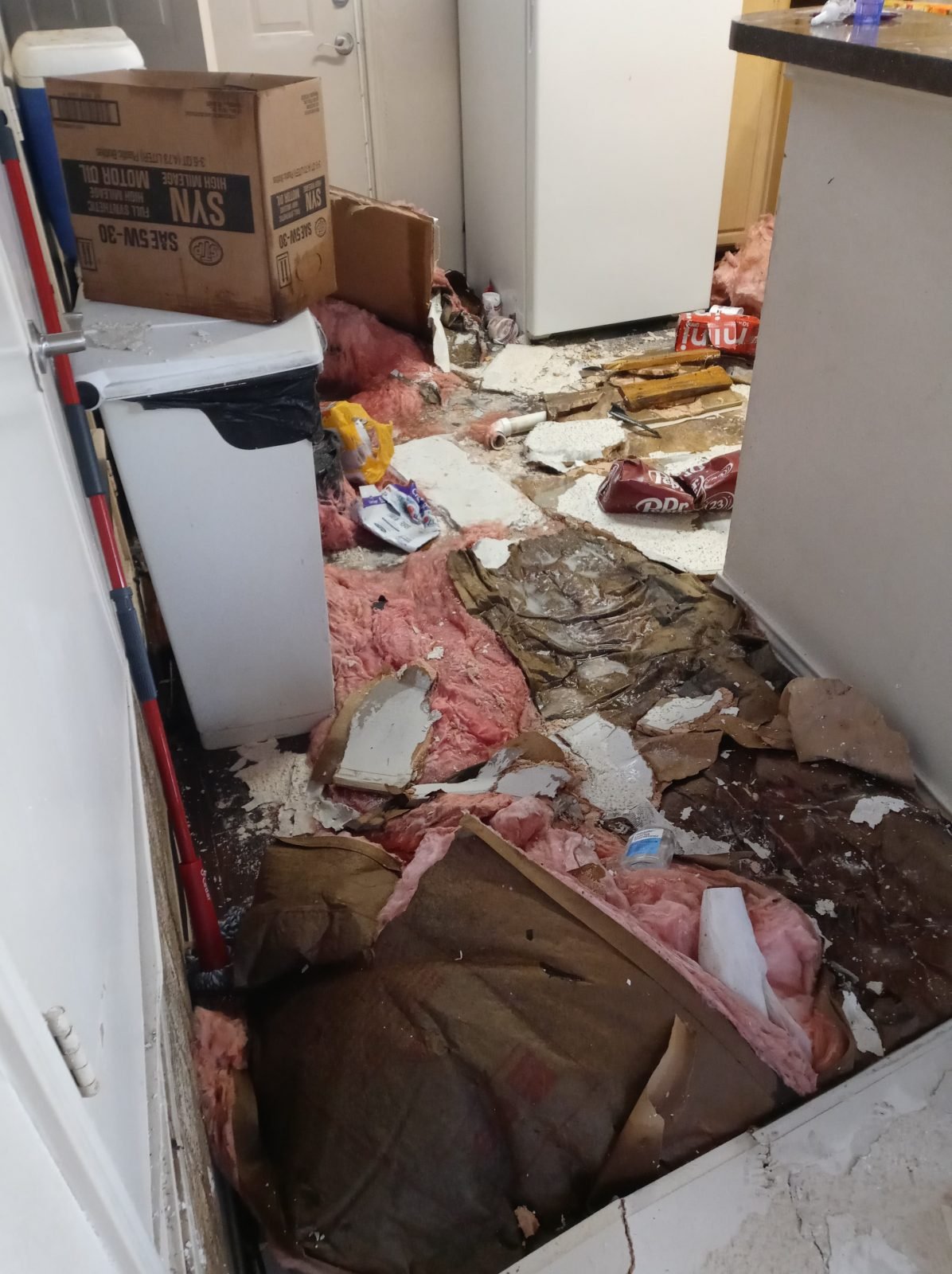In the middle of February was a horrendous week blanketed in white snow and suffering. West Dallas residents lost power, water and hope. At one point on Monday, Feb. 15, three-fourths of homes in West Dallas zip code 75212 were without power, according to Oncor, which manages our electricity infrastructure.
In the aftermath of the storm, Mercy Street executive director Carlton Oby traveled from apartment to apartment in the West Dallas complexes overseen by the Dallas Housing Authority (DHA). The smell of feces, urine and marijuana overwhelmed him. Some units suffered water damage, with pink, fluffy insulation baring itself to people’s homes. Problems piled atop one another with the power blinking on and off, and residents not knowing when, or if, they’d eat.

“You know, it’s already a stressed environment, then you add this,” Oby says. “I mean, my goodness. So what we began to see is people just numb, like ‘I can’t even take no more.’ ”
On top of the emotional trauma from the storm, people are still dealing with COVID-19 and the rise in domestic violence, alcohol and gun purchases, he says.
The New York Times flew out reporter Jack Healy, a Colorado-based correspondent, to feature the stories of West Dallas residents for their podcast, The Daily. The podcast focused on three women, including a woman named Suzanne Mitchell, 37, a mother of three who lives in one of the public housing complexes run by DHA, Lakeview Townhomes.
Even before the storm hit, Mitchell’s year had been off to a rough start. She left her job as a home health aid due to COVID concerns, her mother contracted the COVID-19 virus, and her children were struggling with online school.
During the winter storm, the pipes at Lakeview Townhomes burst and her home flooded, destroying furniture, appliances and even the laptop her daughter uses for school. Mitchell and her children had to stay at her mother’s house, sleeping on couches and air mattresses. Days later, when Mitchell and her mother went to assess the damages at her home, it began to flood again as water rushed from the “gigantic gaping hole” in her kitchen ceiling, Healy said in The Daily episode.
“It’s really hard,” Mitchell said in the podcast, the sound of rushing water in the background. “And my main concern is my place for me and my kids — like the clothes and all that can be replaced but my place and my kids …”
Another West Dallas woman featured in the podcast was temporarily taking shelter in a charter bus, parked outside of a recreation center, in order to stay warm. Tumaini Criss and her three boys lost power in their home early on and huddled in their parked car to try to stay warm. At one point their power returned, and Criss, having just spent $250 on groceries, ran to the fridge to make use of the food that was still good.
The Daily episode described her hastily frying fish and boiling chicken noodle soup to keep warm for later, but 15 minutes into cooking, her pipes burst. Water leaked in from the kitchen and living room until the ceiling opened up.
Criss had been working three jobs and was saving whatever she could to put a down payment on a home for her family. When her home began flooding, she and her boys grabbed everything they could, but without renter’s insurance, Criss is left to replace everything on her own.
These events are what led to Criss and her family sleeping on a bus for warmth, with no room for social distancing. Even with the losses they had just experienced, her biggest concern was her two sons with asthma on a communal bus in the middle of a pandemic.
Mercy Street had the resources to help but not a lot of people were coming, Oby says. In total, only 20 or so people utilized the warming center, he says.
“I think that the scariest thing that I worry about is COVID because everyone is focusing on power, lack of resources and all this, but COVID is still very alive,” Criss said during her conversation with Healy.

In the wake of the storm’s damages, Mercy Street, a Christian organization focused on helping people in West Dallas and South Dallas through mentorships and other resources, also opened its doors as a warming center to residents in the Dallas Housing Authority (DHA), the target audience they serve. Its building on Holystone — the former home of one of the original federal apartment projects in West Dallas — has a small room with a ’50s-diner theme near the entrance. The tables and sparkly vinyl booths offered a comfortable spot to host people needing a warm place to stay. Bags of rice and boxes of beans piled high on the black-and-white checkered tile, ready to be picked up by anyone who needed them.
Later in the week, he received a call from a nearby resident asking if Mercy Street had water they could come pick up. Initially unaware of the need for water, Oby was confused but said yes, and that he’d deliver the water to them.
“It began to be an eye-opening experience of, man, there are people living in the apartments next door to us that don’t have access to running water, and they’ve been without water for a multitude of days,” Oby says. “You’re talking 700 residents, 90% of them or more don’t have running water, so not enough water to flush toilets or to brush teeth or to take a shower.”
That phone call was the moment he realized they had the wrong idea of asking people to come to Mercy Street. When he traveled to the apartments, he said residents “just answered the door the best way they can, however they were dressed — some halfway dressed, they just did the best they could.”
People didn’t want to go anywhere with all the trauma happening to them, he says.
“We need to go to you and do the best we can to serve you because you are not being helped, you are not being served,” he says. “And not to throw any slight on anyone because I truly believe that the people who house them, the Dallas Housing Authority, are our friends, are our partners. It’s just a whole lot happening at one time, and they couldn’t do anymore. I mean we went to one apartment complex, 152 units, and 50 units are unlivable.”

With only two repairmen present to fix damages, DHA occupants frantically were calling plumbers and others who could help, but no one was answering because the same thing was happening all over Dallas, he says.
“And then they’re jacking up the rates because it’s just a time when you need them, so it’s just a very interesting time for the person who’s low on the totem pole,” Oby says.
Mercy Street asked for volunteers as they spread the word about their warming center, and the partner churches who responded — Highland Park Presbyterian and Park Cities Presbyterian — wound up joining Mercy Street staff to walk through the apartment complexes, The Hamptons, Villa Creek, Lakeview and Kingbridge, to give out food and water.
They knocked on every door of more than 600 units in each of these apartment complexes and gave water to anyone who wanted it. Some residents didn’t answer, but Oby says they still knocked on every door.
“You saw people who have a heart for Jesus meet people who desperately needed to know his love in a time in which they didn’t feel it, and it was just awesome,” Oby says. “And so a little passing of a bottle of water or two or whatever, turned into great exchanges on both sides.”

Leave a Reply